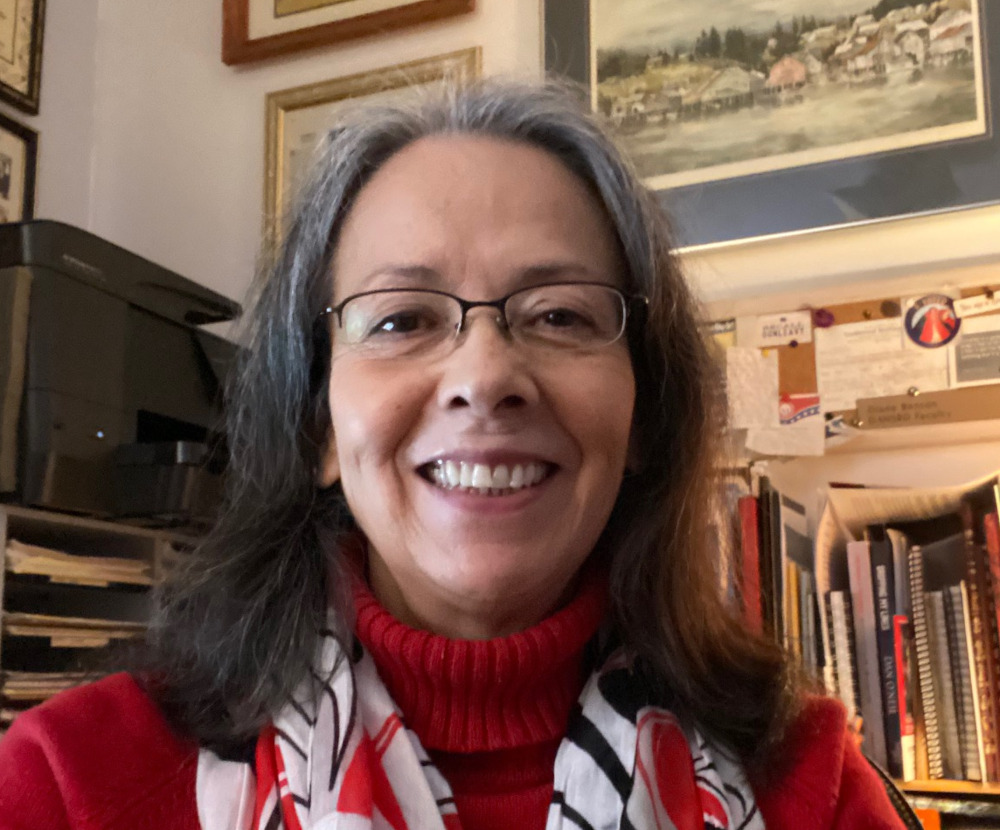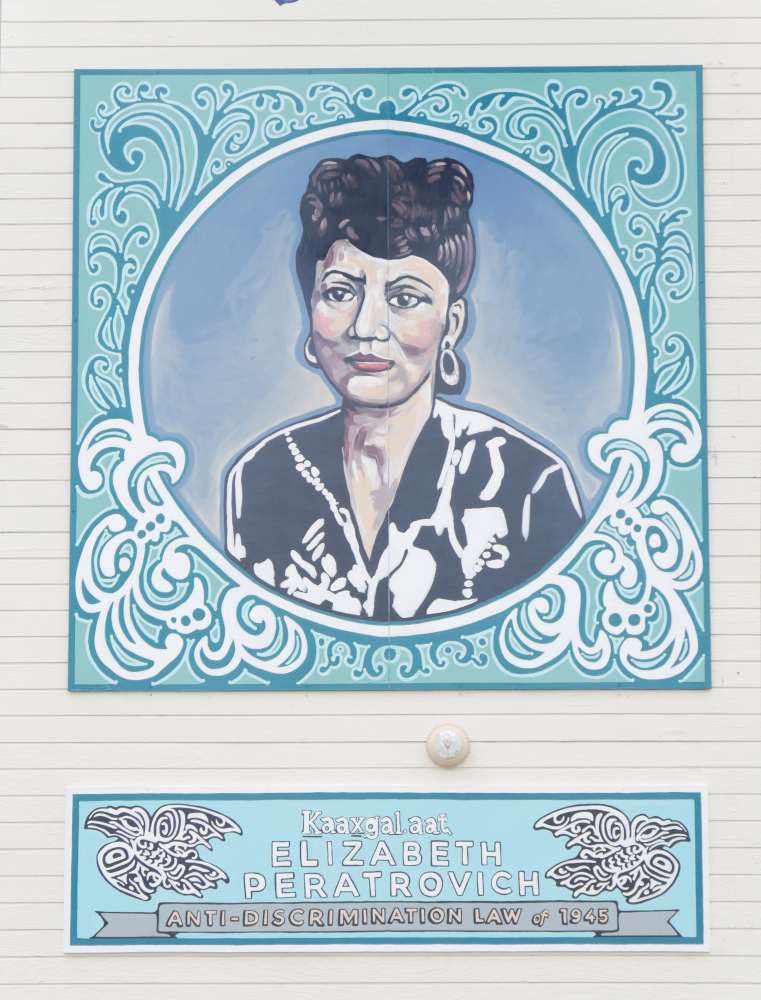
Today, February 16 is Elizabeth Peratrovich Day in Alaska, marking the anniversary of the signing of an anti-discrimination bill passed by Alaska’s territorial legislature in 1945. The holiday honors the civil rights leader born Elizabeth Wannamaker in Petersburg July 4, 1911. She was instrumental in the passage of that law during a time when women were rarely a part of the political world and decades before the national movement for African American civil rights.
Lately Peratrovich has gained more national recognition with her face on a dollar coin issued by the U.S. Mint last year. She was also the subject of a Google doodle at the end of 2020 and a biography written for teens published in 2019. Long before that she was the focus of research for Petersburg resident, playwright and actor Diane Benson.
“My Tlingit name is L’xeis’. I am from the T’akdeintaan clan,” Benson said in a recent interview. “I originate from Sitka actually, where my family comes from. And we are of the Tax hít house. That is the snail house of the T’akdeintaan clan.”

Benson has lived in Petersburg for about a year and a half, long enough to have taken part in the dedication of a new mural on Petersburg’s courthouse honoring the Alaska Native Civil rights leader. Peratrovich died in 1958 and Benson never met her, but she did come to know Roy Peratrovich Sr, the husband of the famous figure.
“He used to talk about his wife and all I thought at the time was, wow, this guy really loves his wife! The way he talks about her, he thinks so much about her. Well it turns out a lot of people thought a lot of her once I got to realize and I’ve learned the history over time.”
Benson also got to know their son, Roy Peratrovich Jr and said the family generously shared personal letters with her as she researched the civil rights leader. Benson used her research to write and act in her 2001 play produced for the Alaska Native Heritage Center called “When My Spirit Raised its Hands.” She also acted in the 2009 film called “For the Rights of All, Ending Jim Crow in Alaska.”
Benson said learning about Peratrovich changed her.
“Learning and seeing how Elizabeth had presented herself, especially in reading those personal letters to her kids, I was really struck with how calm and wise she was to use words to make a difference, instead of your fists,” Benson said. “Up to that point I was probably more fist-leaning. And I was so impressed with the power of oratory and then realizing that’s so much a part of Tlingit culture.”
According to a 1991 history of her life compiled by the Central Council of Tlingit and Haida Indian Tribes of Alaska, Elizabeth Jean Wanamaker went to elementary school in Petersburg. She graduated from Ketchikan High School and went to Sheldon Jackson College in Sitka before studying at Western College of Education in Bellingham. She met Roy Peratrovich in 1931 and they first moved to Klawock, then Juneau in 1941. They had three children.
The Peratroviches were active in the Alaska Native Brotherhood and Alaska Native Sisterhood. Elizabeth also represented the state in the National Congress of American Indians.
The anti-discrimination bill was voted down in 1943 before passing the second time in 1945. There’s no recorded audio of Peratrovich’s famous speech from that year but there are written accounts from witnesses.
Benson said it was really significant to have that bill pass, just decades after Natives secured citizenship and women and Natives the right to vote.
“It was so symbolic,” Benson said. “It made it clear that Native people matter. It made it clear that we have a standard for society that is inclusive and that sent a great, uplifting message. Yeah we were still going to continue to have problems and some things did change overnight, in the sense that now it felt like oh geeze I have to give this person an interview when they come in whether I want to or not, or they’re going to come into my restaurant now. It didn’t mean the feelings changed over night it simply meant that we had some more opportunity.”
That problem of racial disparity has not gone away and Benson is hopeful that Alaskans will continue to talk about what racism looks like today. But she also wants to be mindful of the style of speech and how that can be important in moving forward.
“We see the state of our nation today, the way words are thrown around, very carelessly and in very harmful ways,” she said. “And I think if we could revisit Elizabeth’s style and remind ourselves that we can put principles before personality and address the principles rather than attacking personalities we might just get a little further and be more successful.”
Benson recommends reading the 2019 book written for teens by Annie Boochever called, “Fighter in Velvet Gloves.”
Here’s Diane Benson doing the famous speech from the territorial legislature in 1945.











